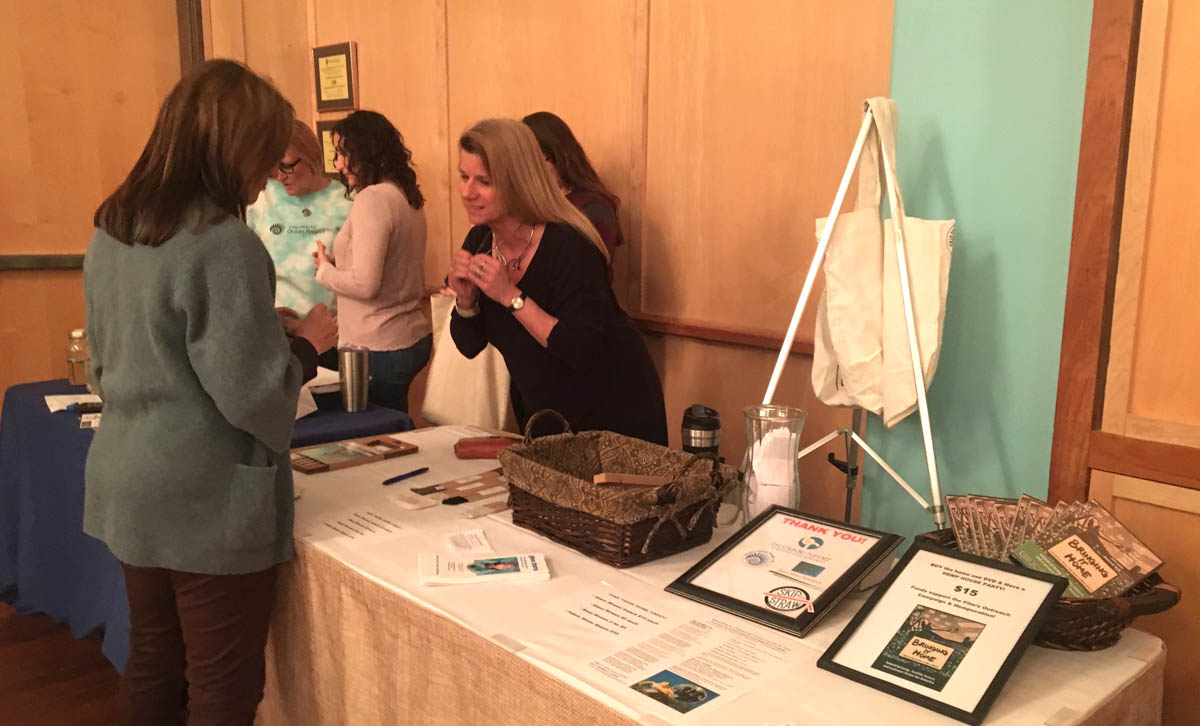As aerial images of the Blockade Runner Resort and Wrightsville Beach’s water tower lit up the screen, the audience clapped and cheered enthusiastically.
The group of several dozen people, from Girl Scouts to University of North Carolina Wilmington students to local business owners, were gathered at the Blockade Runner’s ballroom Sunday afternoon for a special screening of “Straws,” a documentary by North Carolina director and producer Linda Booker about the movement to eliminate the use of plastic straws in an effort to reduce the amount of plastic entering the world’s oceans and harming wildlife.
According to the film, which included clips of a video of a straw being pulled out of the nose of a sea turtle in Costa Rica, more than half of the world’s turtle population has eaten plastic at some point in their lifetimes, and other fish, including popular human food such as tuna and salmon, also often consume plastic that ends up in the ocean.
That has prompted organizations, such as the Wilmington-based non-profit Plastic Ocean Project, to not only raise awareness about the issue but to also take action. They’ve partnered with the Cape Fear Chapter of the Surfrider Foundation and Wrightsville Beach Keep It Clean to create the Ocean Friendly Establishments initiative, which recognizes local businesses that have taken steps toward reducing their consumption of single-use plastic products.
“Our goal is really to reduce the waste load, to get people to use and reuse recyclable products,” said Bonnie Monteleone, Plastic Ocean Project’s executive director and a researcher in UNCW’s chemistry department.
One of the local establishments leading the way in this movement is the Blockade Runner, which was featured in the documentary due to its decision to switch from plastic to paper straws.
“We did a lot of tests to find a paper straw that would hold up to our needs,” said Feletia Lee, the resort’s environmental coordinator. “It took us about three to four months to find the right one.”
Lee said the switch from the old plastic to the new paper straws (which can last up to three hours in a water glass) was made in March 2016. Though paper is more expensive than plastic, the resort has also implemented a “straws by request only” policy, leading to 20 percent reduction in overall food services operations costs, according to Lee.
“That includes the costs of product, the cost of waste disposal, and everything that goes with it,” said Lee. “Because it’s by request only, we’re not going through as many straws, so I don’t have to order as much product.”
For Chapel Hill-based director Booker, whose production company By The Brook has also made other environmental documentaries, finding a local business as influential as the Blockade Runner was a wonderful discovery
“To me, an entire resort taking action [against plastic straws] is impressive,” said Booker, who traveled with her Carolina Beach-based cinematographer Blaire Johnson to different parts of the country and the world to make the film. “And what makes it even better is it’s right here in our backyard. We wanted to tie our home state into the film, and this was an amazing way to make it happen.”
Sunday’s screening at the Blockade Runner, which Booker called a “sneak preview,” was only the second time the film has been shown in public, according to the filmmaker. A tour of film festivals will be next, starting with the Sonoma International Film Festival at the end of the month, but Booker said the goal is to eventually make it available to groups and community organizations to show on their own.
“The idea is to get it out there for people to organize their own local screenings and hopefully start their own [anti-plastic straw] campaigns like the ones that are popping up here and all over the world,” said Booker.
In Wrightsville Beach, where two of the biggest dining establishments have already been recognized for their plastic-reduction efforts, as the Oceanic is also on the list of Ocean Friendly Establishments, Lee said the Blockade Runner will continue with what’s been a successful switch so far.
“We’ll keep moving forward and continue to recycle all our plastics as much as we can,” said Lee. “We’re always looking for more ways to reduce our waste.”




